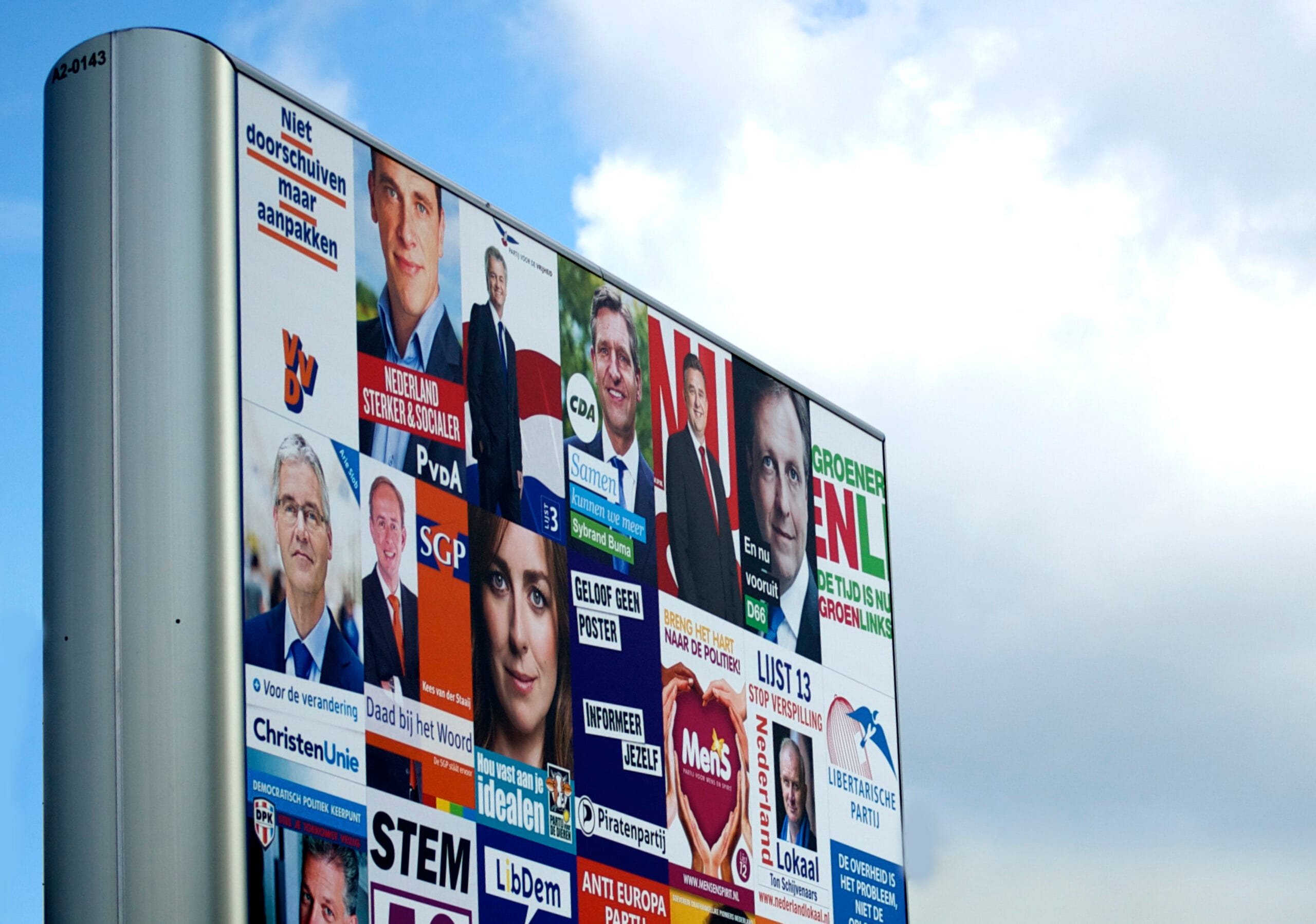Source: Getty Images
When I arrived in Belgrade on 13 May, I immediately felt that we were at a special moment in the country. Together with a delegation of 11 people, I travelled to Serbia on behalf of Friends of the Western Balkans (FoWB) and Foundation Max van der Stoel (FMS), to see for myself what is going on there. Being a student and intern at FMS myself, I found it special to interact in this way with activists my own age, who are standing up for democracy and justice under difficult circumstances. We went to listen and learn about mass student protests, political pressure and the movement growing across the country. I knew we were entering a politically turbulent period, but what I experienced touched me much more deeply than I expected.
After arriving in Belgrade, we drove straight to Novi Sad, the beating heart of the protest movement. That same evening, we witnessed an impressive protest. At 30 places in the city, traffic was stopped at exactly 18:00, for 16 minutes, in memory of the 16 people killed in the train station collapse. We stood at an intersection where people gathered with whistles, horns and signs. There were police, but they kept their distance. For a moment, it felt like the whole city was breathing together. That moment - silent and loud at the same time - gave me a first, raw insight into what was at stake here.
Courage and solidarity on the streets
Over the two days we were there, we talked to students, journalists, politicians and activists. A major recurring theme that struck me in these conversations was the courage and dedication of activists and students, who continue to mobilise despite great risks. Arrests, intimidation and even physical violence pose a real danger to protesters. For example, six political prisoners have been detained for more than 60 days under very poor conditions: overcrowded cells, bedbugs, hardly any visitors and forced exposure to propaganda TV. This treatment is unacceptable and constitutes a serious violation of basic human rights. It was no longer a distant story. As a student, I felt a connection with the young people claiming their future despite arrests and intimidation. Their courage made me think: how far would I dare to go myself?
What gave me hope was how broad-based the movement is. Students know how to connect different communities, even in a country that is historically divided. For instance, we heard about actions where students from predominantly Muslim Novi Pazar took over the protests in Belgrade during Easter so that their Christian fellow students could go home. Such gestures show that this is not just about politics, but something bigger, a shared call for reconciliation and change.
At the same time, it is worrying how the government is trying to get a grip on universities. In talks with professors, it became clear that they are under severe pressure: inspections, budget cuts and some are only receiving 12% of their salaries. Universities are considered the last line of defence for democracy in Serbia and their position deserves our attention and support. The student movement relies heavily on universities as an organisational platform, making their protection essential for the future of demonstrations.
Students and universities as backbone of the movement
What stayed with me the most were the meetings with students in Novi Sad and Belgrade. In Novi Sad, after the protest, we spoke to a student who explained how their 'plenums' work. Each faculty plenum sends a delegation to a larger university plenum, so decisions are made in a structured way. I found this horizontal and directly democratic model special, it not only shows how serious they are but it also adds to the legitimacy of the protests.
In Belgrade, we spoke to a group of young students who keep going despite everything. Their tenacity is impressive. Step by step, they are building a movement that is not only widely supported but also deeply rooted in social awareness and justice. What they are doing is not easy, but they know that change will never come otherwise. The strength with which they organise and mobilise themselves is inspiring and an example we in the Netherlands can learn a lot from.
This trip touched me. Not only because I learned more about the political situation in Serbia, but especially because of the people I met. Young people who, like me, are studying, thinking about the future, but meanwhile have to fight daily for rights that I take for granted. Their resilience deserves our support and their stories our attention.




